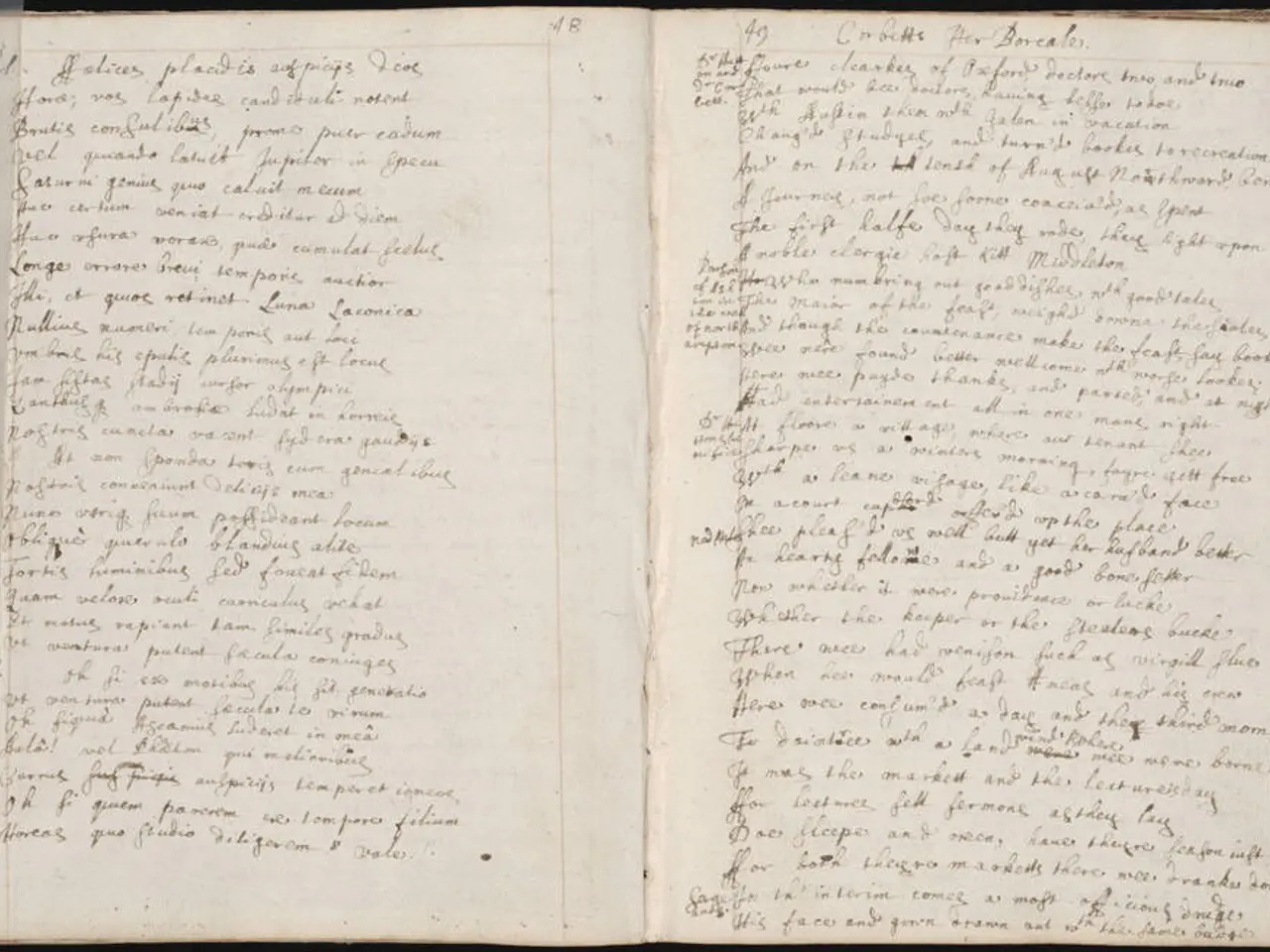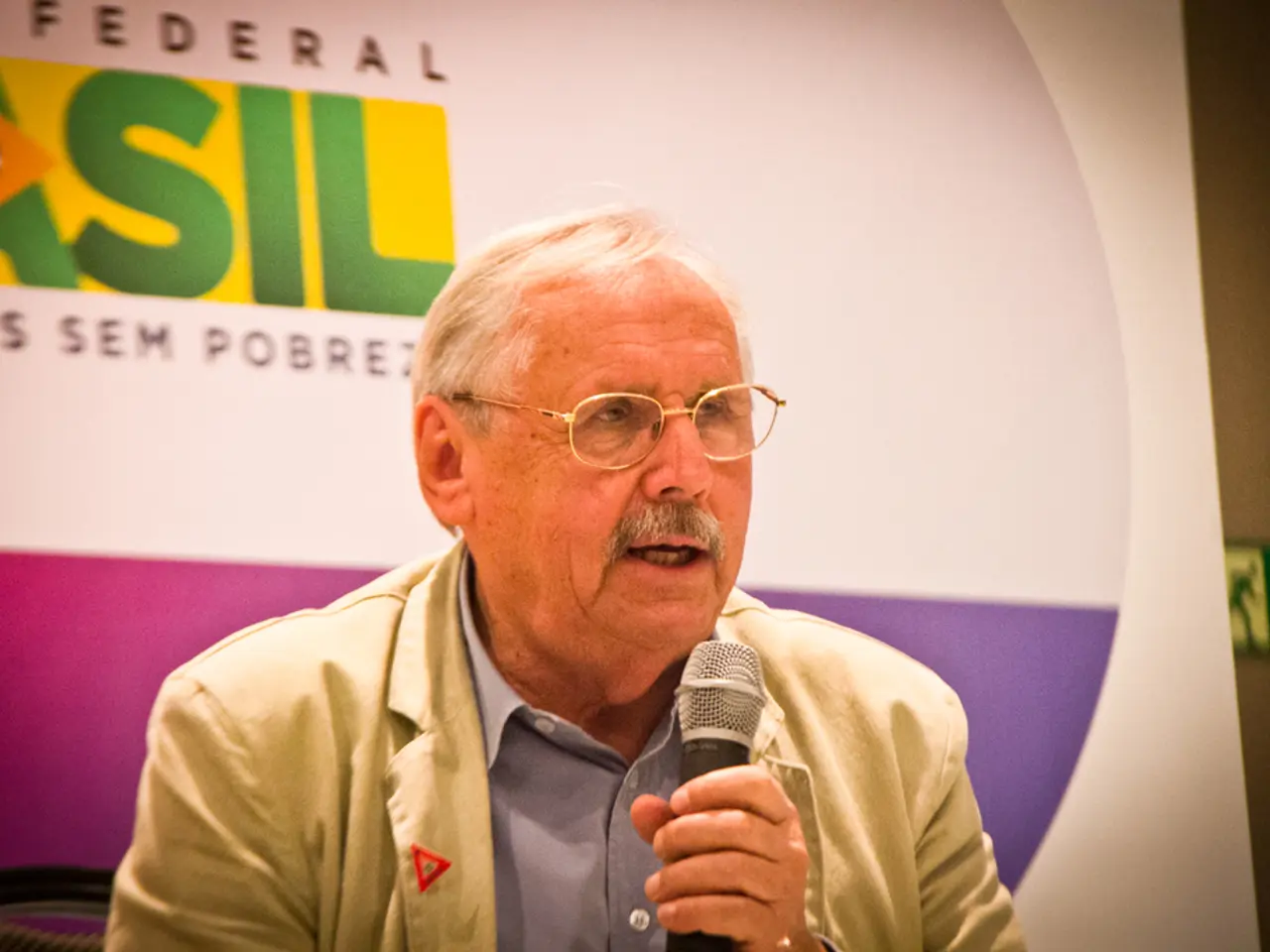Awarded Buchner Prize to Author Krechel due to international appeal - Buchner Prize Awarded to Krechel, Wearing Disguise as a Foreigner
Ursula Krechel, a 77-year-old writer living in Berlin, has been chosen to receive the prestigious Georg Büchner Prize 2025 by the German Academy for Language and Literature. The award ceremony will take place on November 1st at the State Theatre in Darmstadt.
The Georg Büchner Prize, established in 1951 and endowed with 50,000 euros, is one of the most important literary accolades in the German-speaking world. This year, it honours Krechel for her body of work, which includes poems, plays, radio plays, novels, and essays, that challenge the devastations of German history and the rigidity of the present through literature.
Krechel, who has expressed interest in exploring the experiences of exiles, both literary and otherwise, and rescuing their stories from obscurity, has consistently engaged with themes of history and memory, exile and flight, violence, and feminism in her work. Her characters frequently bear the scars of historical violence—both directly and across generations—and her narratives insist on the importance of remembering and reckoning with the past as a condition for understanding the present.
Displacement, exile, and the search for a safe haven are recurring motifs in Krechel’s work. She gives voice to those forced to flee, whether due to persecution, war, or social oppression. Her nuanced portrayals of migration and displacement reflect both the alienation and resilience of individuals caught in upheaval, often drawing parallels to contemporary issues.
Krechel’s literature does not shy away from portraying violence—whether physical, structural, or psychological. She examines how violence shapes identities, communities, and national histories, while also exploring the potential for healing and reconciliation, however fragile.
While Krechel’s work is not polemically feminist, it consistently foregrounds women’s experiences and perspectives, particularly overlooked or marginalized stories. Her protagonists often struggle against gendered structures of power, seeking agency in hostile environments. This feminist sensibility is interwoven with broader themes of oppression and survival.
Hauke Hückstädt, the director of the Literaturhaus Frankfurt am Main, described Krechel as the "youngest of the non-aging" and an author who is not easily satisfied. Her work has earned her a place among distinguished figures such as Max Frisch, Günter Grass, Heinrich Böll, and Elfriede Jelinek.
Culture State Minister Wolfram Weimer congratulated Krechel, stating that her work opens archives of memory, dissects our language, and touches wounds that still shape us today. Krechel, who debuted in 1974 with the play "Erika" and has since published numerous novels, poetry collections, and essays, views writing as a productive way to deal with or understand the world.
[1] Information sourced from various online articles and interviews.
[1] The Georg Büchner Prize, a significant literary honor across EC countries, recognizes Ursula Krechel's body of work that delves into subjects like history, memory, exile, and feminism, often intertwined with themes of violence and displacement. Her literary explorations often offer insights into the experiences of those forced to flee, drawing parallels to contemporary issues while also highlighting the resilience of individuals in upheaval.
[2] Beyond her contributions to literature, Krechel has also exhibited a keen interest in fashion-and-beauty, books, and entertainment, areas that perhaps play a part in shaping her vivid, thought-provoking lifestyle. Whether it is through poignant prose or observation of the world around her, Krechel continues to challenge the status quo, exploring the complexities of history and the human condition with grace and tenacity.






